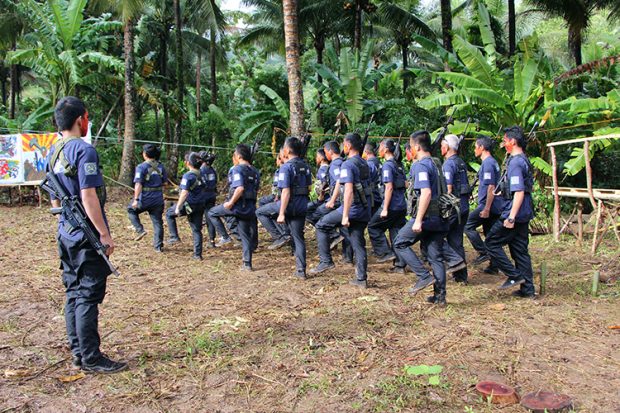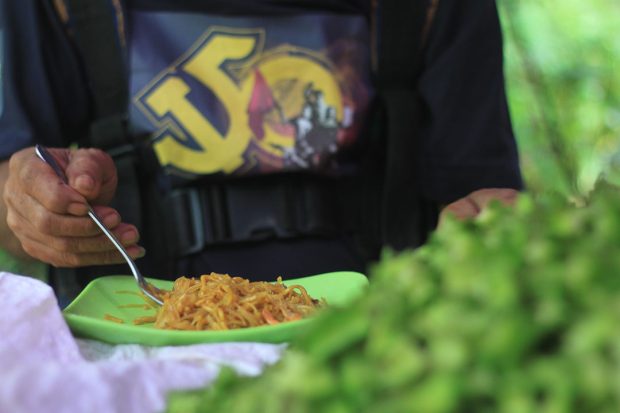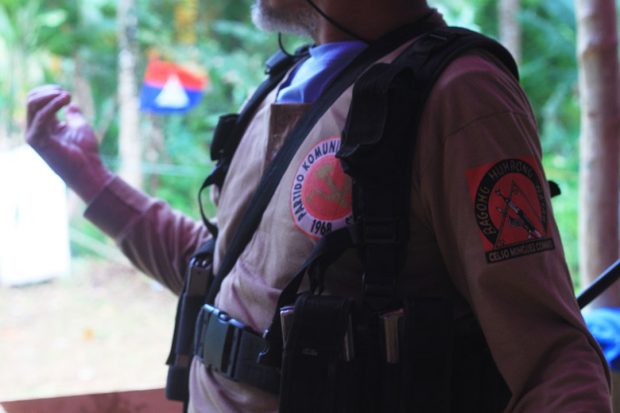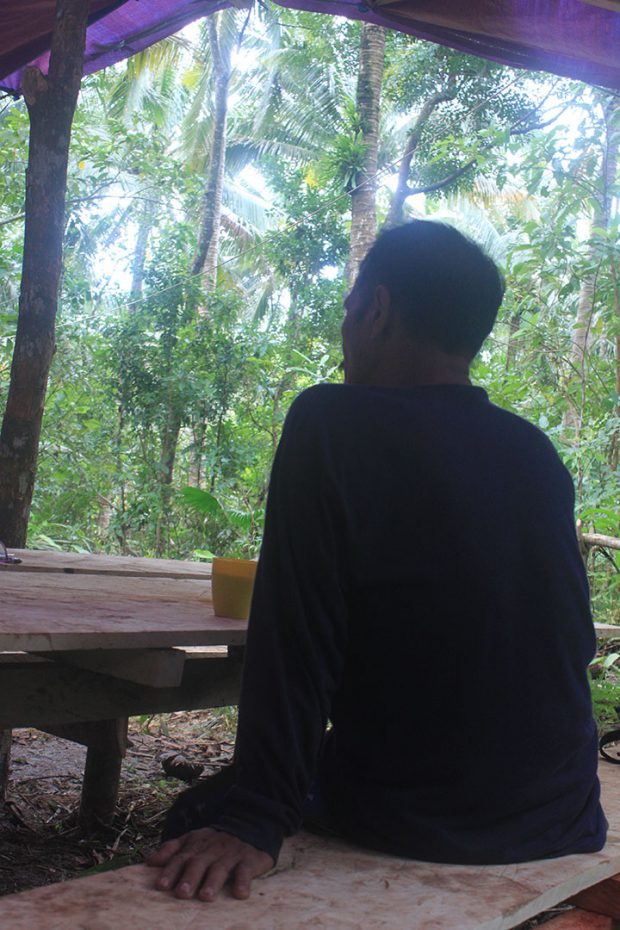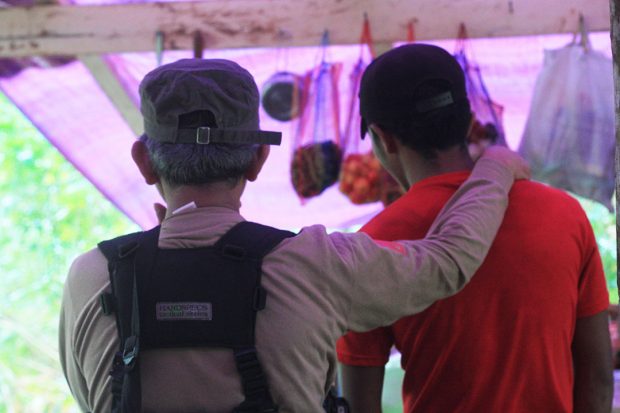Fernandez urges NPA in Negros to defend farmers from rights violations
National Democratic Front of the Philippines (NDFP) peace consultant Frank Fernandez urged revolutionary forces in Negros Island to intensify their campaigns against human rights violations, noting that “things have gotten much worse” under the Rodrigo Duterte government.
“The revolutionary forces must bring the struggle to a higher stage as the systematic campaign against the peasants and the activists have become much worse since I was last there,” Fernandez said.
Speaking from his hospital bed at the Philippine Heart Center (PHC), Fernandez said it is a testament to the strength of the revolutionary forces in the island that Duterte has ordered the deployment of more Philippine Army infantry brigades in the island since November.
Duterte issued Executive Order 32 in November 2018 ordering more troop deployment in Negros, Bicol and Samar in a bid to crush New People’s Army (NPA) units in the said regions.
Increased Armed Forces of the Philippines presence in Negros, however, has led to numerous human rights violations, Fernandez said.

Complete turnaround
Fernandez said the NPA in Negros has fully recovered from near decimation in the early 1990s.
“There was almost no NPA left in Negros in 1994,” Fernandez said.
He credited the NPA’s grasp of the correct political and ideological lines that allowed its forces to recover and overcome the schism with former comrades that broke away to form the so-called Revolutionary Proletarian Army and the Alex Boncayao Brigade.
Fernandez said that the poor masses helped in their recovery.
“The poor but struggling masses of Negros did not allow us to give up and encouraged us to rebuild,” Fernandez said.
The incarcerated NDFP peace consultant said it is time to repay the masses by defending them against the government and the landlords’ widespread human rights violations in the island.
Human rights violations
Intensifying agrarian reform struggles across the Negros Island has resulted to two massacres, assassinations of a human rights lawyer and a municipal councilor as well as killings and arrests of several farmers and human rights defenders.
Just yesterday, another human rights defender who was an active member of the Iglesia Filipina Independiente was murdered in his hometown of Manjuyod, Negros Oriental.
An urgent alert by the group Defend Negros said Salvador “Bador” Romano, 42, an adviser of the YIFI (Youth of the IFI) and former Negros Oriental coordinator of the human rights group Karapatan, was shot dead by motorcycle-riding gunmen around 12:30 p.m.
Last March 30, 10 peasants and church workers were killed in one night in Canlaon City and Sta. Rita, Negros Occidental.
Nine sugarcane farmers, including four women and two children, were also killed last October 20 in Sagay City. The bodies of three of the victims were also burned by their killers.
Human rights lawyer Benjamin Ramos and Escalante City councilor Bernardino Patigas Sr., both described as martyrs of the sugar cane workers’ struggles, were killed on November 7 and April 22, respectively.
After Patigas’ murder, opposition Senator Leila de Lima denounced the murders, blaming the Duterte administration for “the snowballing record of human rights defenders killed in Negros Island.”
De Lima said Patigas’ murder raises suspicions that there is a death squad targeting rights advocates in the province because his killing “hews closely” to the type of killings regularly happening recently.
The senator said Patigas’ murder was the 48th in Negros under Duterte.
Bishop Gerardo Alminaza of the Roman Catholic Diocese of San Carlos also condemned the killings and called on the Duterte government to respect human rights.
“In sadness, we all are crying out: End the Killings! These barbaric and calculated assassinations must end! We should not tolerate this kind of crime,” the bishop said in a statement last April.
Fernandez, for his part, urged for the resumption of the abandoned peace talks between the NDFP and the Duterte government in order for the human rights situation in Negros to be addressed by the negotiating panels.
“It would be favorable for the masses, as well as for jailed peace consultants like myself, if the peace talks would be revived,” he said.
Heart problems
Fernandez was taken to the PHC last Friday to undergo laboratory examinations.
“I am suffering from heart ailments, spinal column problems, chronic obstructive pulmonary disease, arthritis, and hypertension. There may be more,” he told Kodao.
Fernandez said he left Negros more than a year ago to seek medical treatment in Manila when nabbed by military and police operatives in Liliw, Laguna last March 24.
“Doctors of the Philippine Army General Hospital in Fort Bonifacio discovered I also have hardening of the arteries close to my heart,” he said.
Fernandez has since been incarcerated at Camp Bagong Diwa in Taguig City where his state of health has gotten worse.
“They often feed us porridge that are either so unpalatable or are so sweet when made into champorado (chocolate porridge). For lunch and dinner, they feed us papaya soup with sardines or miswa noodles with sardines,” he said.
The Sta. Cruz Regional Trial Court in Laguna ordered the 71-year old Fernandez to be taken to the PHC for medical check up. # (Raymund B. Villanueva)

